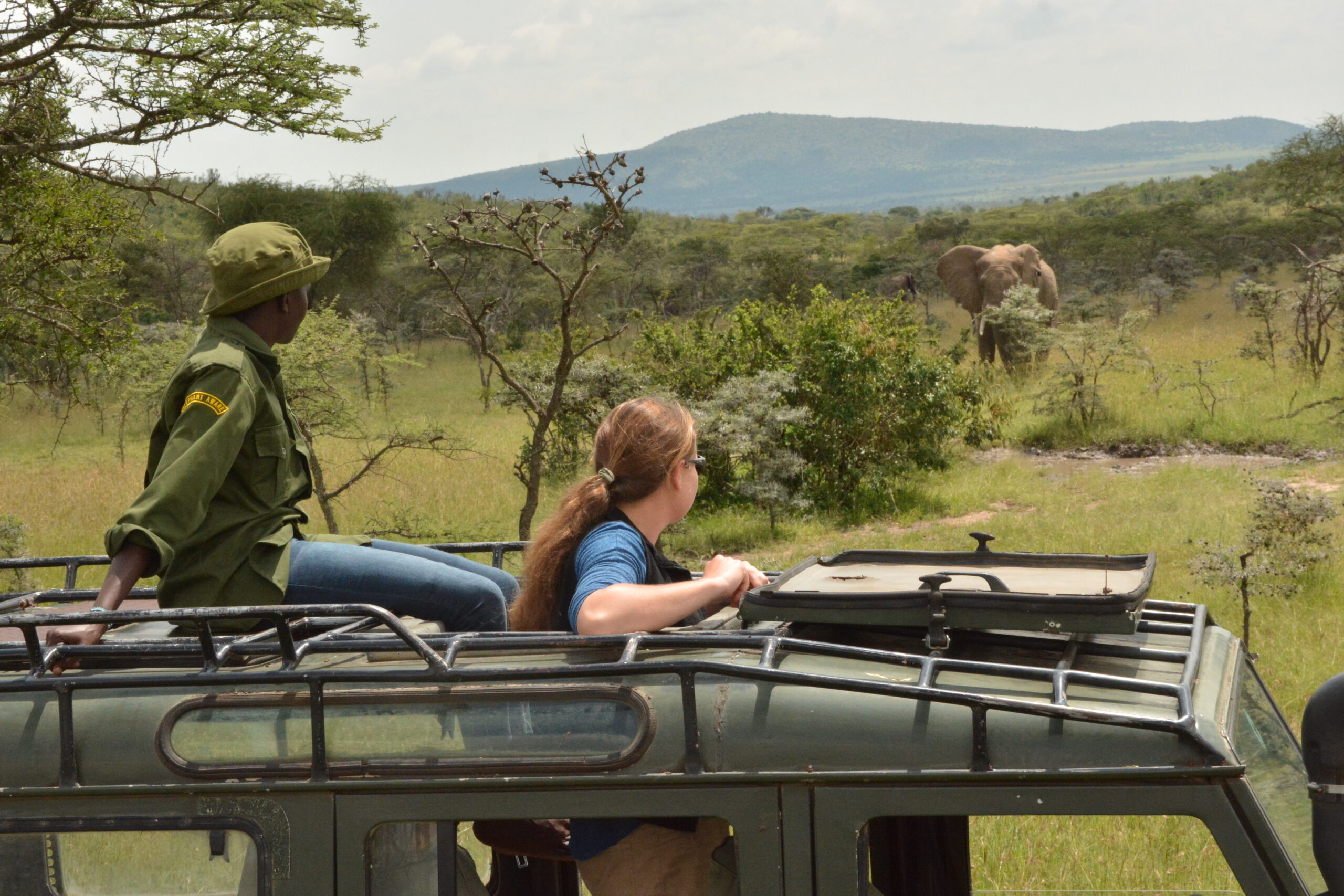With the help of town resident Andrea Zeren, Kenyan Wildlife Conservationist Gini Cowell has traveled all the way from Africa to inform residents that they can still make an impact when it comes to saving the tusked animals.
Cowell will be speaking at the King Hooper Mansion on Saturday, April 22 at 4 p.m.
Both Cowell and Zeren are on the board of directors for Elephant Aware USA, an organization dedicated to protecting elephants from poaching, human-elephant conflict, habitat loss, and climate change.
Cowell was born and raised in Kenya to parents who were both conservationists, so it was only natural that she also became part of the effort.
“My parents started working conservation a long time ago, before I was born,” said Cowell. “So my brother and I, we grew up into this field. It’s my parents who sort of instilled this passion in me for what I do now. It’s been a part of my life for as long as I can remember.”
Zeren got involved in animal activism nearly 10 years ago after visiting an elephant sanctuary in Thailand. Shortly thereafter, she met Cowell, who was presenting at a local event. At Salem State University, where Zeren taught, she co-chaired a committee for Earth Days Week, which involves free, weeklong, publicly open events that focus on keeping the environment clean.
After the events, Zeren was asked by Therese Desmond, who is now the board president of Elephant Aware USA, what else they could do to advocate for the environment. She then reached out to Cowell and in 2018, Zeren and others made the trip to Kenya to see the work that Cowell and other conservationists were doing.
“We went down there in 2018 and we saw the program, we saw what they do, we were there,” Zeren said. “That sealed the deal for both of us. We were like ‘We have to be the fundraising and educational arm of this.’”
Now, Cowell, Zeren, and Desmond make up half of the board of directors for the organization. Cowell stated that elephant poaching has largely been stopped in Kenya thanks to the effort of conservationists, though it continues to be a problem throughout the continent. The biggest threat to elephants in Kenya now, Cowell says, is human-elephant conflict.
“The root of that is shrinking space,” she said. “Elephants are losing their space and they’re coming into contact with people more often, and this can have deadly consequences for both humans and elephants.”
She gave one example of a woman’s cow, who was accidentally killed by an elephant that was in close quarters during a bad storm. It was the woman’s only cow and source of food, so to prevent any harm being done to the elephant in retaliation, Cowell and Zeren helped to raise enough money to get her a new cow.
“What we were trying to do was turn a very negative experience with elephants into a more positive perspective for her going forward, and seeing elephants as beneficial,” Cowell said.
During her two-week stint in the U.S, Cowell has already spoken at Tufts University and Salem State, and Zeren says that she is able to convey information to the audience in a way that makes a significant impact.
“So many people said to me ‘She’s so amazing,’” Zeren exclaimed. “She’s very contained and yet she’s very capable of explaining what’s going on.”
Though there are no wild elephants in the U.S, their importance to the environment stretches far beyond the borders of Africa, and Zeren mentioned the importance of getting people who live overseas involved.
“I think it’s critical that people really know what’s going on, who they are,” Zeren said. “They’re sentient beyond belief. They really create the forest. Their whole body is made to do that and they are sort of the species that leads all the other species to water.”
The entire event will be from 3 p.m. to 6 p.m., with Cowell presenting at 4 p.m. Pre-registration is recommended and tickets can be purchased by visiting elephantawareusa.org (share your name & email) or by contacting elephantawareusa@gmail.com. Recommended donation amounts are $25 to $35 for individuals and $45 to $60 for couples.

